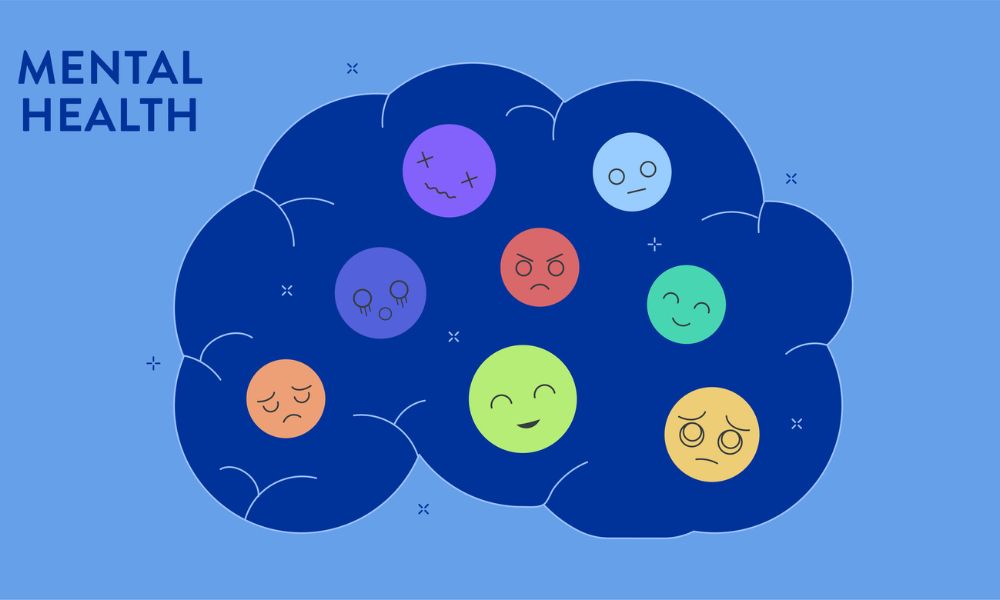Diet plays a significant role in our emotional health, and what we eat can greatly affect how we feel, including feelings of anger. Understanding the connection between our food choices and emotions can help us manage our tempers more effectively. Certain foods may trigger irritability, while others can promote calm and well-being.

Research suggests that diets high in sugars and unhealthy fats can lead to increased aggression and emotional instability. On the other hand, a balanced intake of whole foods rich in nutrients can support our mental health and help us maintain a more even temper. Realising this link empowers us to make better dietary choices that can improve our mood and emotional responses.
As we explore the various foods that can either exacerbate anger or promote calmness, we will discover practical tips for creating a diet that supports our emotional well-being. By being mindful of what we consume, we can take significant steps towards a more balanced and peaceful state of mind.
Key Takeaways
- Foods high in sugar and fat can increase anger and irritability.
- A balanced diet supports overall mental health and emotional stability.
- Mindful eating can help us manage our emotions effectively.
Understanding the Connection between Diet and Emotions

Diet plays a crucial role in shaping our emotions and mental health. The nutrients we consume affect our brain's functioning and how we feel. We will explore the impact of nutrients and the role of neurotransmitters in regulating our emotions.
Impact of Nutrients on Mental Health
Certain nutrients have a direct effect on our mental health. For instance, Omega-3 fatty acids can help reduce feelings of anger and irritability. These healthy fats are found in fish, walnuts, and flaxseeds.
Moreover, vitamins and minerals, such as Vitamin D and magnesium, play a vital role in mood stability. Low levels of these nutrients can lead to increased feelings of anxiety and sadness. A well-balanced diet rich in fruits, vegetables, whole grains, and lean proteins supports our emotional well-being.
Conversely, processed foods high in sugar and unhealthy fats may elevate cortisol levels. High cortisol is linked to stress and poor mood. By choosing nourishing foods, we can positively influence our emotional health.
The Role of Neurotransmitters in Emotion Regulation
Neurotransmitters are chemicals that transmit messages in our brain. They significantly influence how we feel and react emotionally. Serotonin, often called the "feel-good" neurotransmitter, is essential for regulating mood. Foods like bananas, nuts, and seeds can help boost serotonin levels.
Additionally, neurotransmitters like dopamine and GABA also play crucial roles. Dopamine is linked to pleasure and reward, while GABA helps calm us down. A diet that includes protein, healthy fats, and complex carbohydrates supports the production of these important chemicals.
When we fuel our bodies with the right foods, we can enhance our emotional balance. Understanding this connection helps us make better dietary choices for managing our anger and other emotions.
Nutritional Triggers of Anger and Irritability

Our diet can play a significant role in how we feel emotionally. Certain foods and ingredients can increase feelings of irritability and anger. Understanding these triggers can help us make better choices.
Effects of Caffeine and Sugar on Mood
Caffeine is a common stimulant found in coffee and energy drinks. While it can boost our energy, too much can lead to irritability and anxiety. For some, it may disrupt blood sugar levels, leading to mood swings.
Added sugar also affects our mood negatively. High sugar intake can spike our energy briefly but often results in a crash that leaves us feeling tired or cranky. This pattern can make irritability more likely.
Key Points:
- Limit caffeine to moderate levels.
- Reduce added sugars to maintain steady energy.
Inflammatory Foods and Emotional Responses
Certain foods can increase inflammation in the body, which may lead to emotional instability. Fried foods and processed foods are major culprits. These items often contain refined carbohydrates and unhealthy fats that can negatively impact our mental health.
Alcohol is another trigger. While it may initially feel relaxing, it can cause mood swings and increased irritability over time. Choosing whole foods, such as fruits and vegetables, can help reduce inflammation and improve our mood.
Key Points:
- Avoid fried and processed foods.
- Consider cutting back on alcohol to manage mood.
Foods That Can Help Reduce Aggression and Anxiety

To manage aggression and anxiety effectively, certain foods play a vital role. By including specific nutrients in our diet, we can support our emotional wellness and promote calmness. Here, we explore the importance of omega-3 fatty acids, magnesium, vitamins, and amino acids.
Inclusion of Omega-3s and Magnesium-Rich Foods
Omega-3 fatty acids are essential for brain health and may reduce anxiety and aggression. Foods such as fatty fish (salmon, mackerel, sardines) are excellent sources. These fats help decrease inflammation and improve mood.
Magnesium is another crucial mineral that aids in calming the nervous system. It helps manage symptoms of anxiety and promotes relaxation. We can find magnesium in leafy greens, nuts, seeds, and whole grains. Regularly consuming these foods may help us feel more balanced emotionally.
Vitamins and Amino Acids for Emotional Wellness
Vitamins like D play significant roles in our mood regulation. A deficiency in vitamin D has been linked to increased feelings of anxiety. We can source vitamin D from fortified foods, fish, and exposure to sunlight.
Amino acids, particularly tryptophan, are important for producing serotonin, the "feel-good" hormone. Foods rich in tryptophan include turkey, eggs, and dairy products. Incorporating these foods into our meals can support mental health and help reduce feelings of stress and aggression.
We should consider including these nutrients in our diets to promote a calmer, more balanced state of mind.
The Importance of Maintaining Stable Blood Sugar Levels

Maintaining stable blood sugar levels is crucial for emotional well-being and overall health. When our blood sugar fluctuates, we may experience mood swings, irritation, and even anger. This section explores dietary choices that support balanced blood sugar and the benefits of healthy snacking.
Dietary Choices for Balanced Blood Sugar
To keep our blood sugar steady, we should focus on complex carbohydrates. Foods like whole grains, legumes, and vegetables are excellent choices. These carbohydrates digest slowly, which helps prevent rapid spikes and drops in blood sugar levels.
We should be mindful of our sugar intake as well. High-sugar foods can lead to energy crashes, making us feel irritable. Instead, we can choose snacks with a low glycaemic index, such as oats and quinoa.
Incorporating healthy fats and proteins in our meals is equally important. These nutrients aid in slowing glucose absorption, which can lead to more stable energy levels. For example, combining whole grain bread with nut butter is a tasty way to achieve this balance.
Snacking on Fruits and Nuts for Emotional Equilibrium
Snacking wisely can help us maintain emotional stability. Fruits like bananas and dried fruits offer natural sugars that provide a quick energy boost. Paired with nuts, they create a balanced snack rich in protein and healthy fats.
Bananas are particularly effective as they contain vitamins and minerals that support mood regulation. Dried fruits, such as apricots and raisins, are convenient options that can satisfy sweet cravings without causing blood sugar spikes.
Nuts, like almonds and walnuts, provide essential fatty acids that support brain health. Snacking on a handful can prevent hunger and help us stay calm throughout the day. By making these mindful snacking choices, we can manage our mood and maintain stable blood sugar levels more effectively.
Creating a Calm Mind through Nutritional Choices
Our dietary choices can greatly impact our mental state. By incorporating specific foods and beverages, we can help promote a sense of calm. Two areas to focus on are herbal teas and the benefits of fermented foods along with prebiotics.
Herbal Teas and Their Soothing Properties
Herbal teas are well known for their calming effects. Chamomile tea, for example, is revered for its ability to reduce anxiety and improve sleep. It contains apigenin, an antioxidant that binds to brain receptors, promoting relaxation.
Green tea is another excellent choice. It has L-theanine, which can help lower stress levels and enhance focus. Both teas are easy to prepare and can be enjoyed at any time of day.
We can benefit from incorporating these teas into our daily routine. A warm cup of chamomile or green tea can serve as a comforting ritual, enhancing our overall mood.
The Positive Influence of Fermented Foods and Prebiotics
Fermented foods, like yogurt and kimchi, are rich in probiotics. These beneficial bacteria help support gut health, which is closely tied to our mental well-being. A healthy gut can lead to improved mood and reduced feelings of anxiety.
Prebiotics are equally important. Foods such as garlic, onions, and bananas provide the nutrients probiotics need to thrive. By consuming both prebiotics and probiotics, we can maintain a balanced gut microbiome.
Adding fermented foods to our diet feels rewarding and offers significant mental health benefits. Together, they create a strong foundation for a calm and stable mind.
Building a Diet to Support Overall Well-Being and Mental Health
A well-planned diet can play a crucial role in enhancing our mental health and overall well-being. By focusing on specific dietary patterns and including a variety of nutrient-dense foods, we can support our mood and emotional health effectively.
Elements of the Mediterranean Diet
The Mediterranean diet is known for its positive effects on mental health. It emphasises whole foods, healthy fats, and a range of nutrients. Key components include:
- Fruits and Vegetables: These are packed with vitamins, minerals, and antioxidants. Tomatoes and leafy greens like spinach are particularly beneficial.
- Healthy Fats: Olive oil is a staple, providing monounsaturated fats that protect brain health.
- Whole Grains: Foods like barley and whole grain bread supply complex carbohydrates, aiding in mood regulation.
- Fish: Rich in omega-3 fatty acids, fish like salmon can reduce symptoms of depression.
- Garlic: This adds flavour and may support immune health, contributing to overall wellness.
Adopting elements of this diet can help promote a stable mood and reduce feelings of anger.
Incorporating a Variety of Nutrient-Dense Foods
To support our mental health, we should incorporate a diverse range of nutrient-dense foods. Here are some important categories to include:
- Lean Proteins: Foods like chicken, beans, and lentils provide the amino acids needed to produce neurotransmitters, which boost mood.
- Whole Foods: Minimising processed foods can lower sugar spikes and crashes, which impact our emotions.
- Fruits: Bananas and berries are not just tasty; they're also linked to improved mood due to their nutrient content.
- Nuts and Seeds: Almonds and chia seeds offer healthy fats and magnesium, which have been shown to support mental clarity and calmness.
By focusing on these foods, we can build a diet that actively promotes our emotional and mental health.
Practical Tips for Managing Diet-Related Emotions
Managing our emotions through diet can make a significant difference in how we feel. By controlling certain foods and developing strategies to curb emotional eating, we can foster a more balanced mood.
Limiting Trigger Foods to Curb Anger
We often experience heightened emotions when we consume specific foods. Fast food, which is high in fat and sugar, can lead to irritability and frustration. Limiting our intake of these foods can help stabilise our mood.
We should also be cautious with spicy foods. While they may be enjoyable for some, for others, they can lead to stomach discomfort, which can amplify feelings of stress. Instead, we can replace these trigger foods with healthier choices like whole grains, fruits, and vegetables. These alternatives provide essential nutrients that contribute to better emotional health.
Strategies for Avoiding Emotional Eating
To combat emotional eating, we can adopt several strategies. First, we could keep a food diary. Writing down what we consume, how much, and our emotions during meals can help us identify patterns.
Next, practising mindful eating is crucial. We should take our time to enjoy meals, recognising when we are truly hungry or simply seeking comfort. Deep breathing or short walks can help manage chronic stress before meals, reducing the urge to eat emotionally.
Finally, we can create a supportive environment by surrounding ourselves with nourishing foods. When our kitchens are stocked with healthy options, it becomes easier to make better choices in times of stress.
Frequently Asked Questions
In this section, we will address common questions about the connection between diet and anger. We will explore nutrients, specific foods, and dietary plans that can influence how we feel and respond emotionally.
What nutrients have been associated with mood regulation and potential aggression reduction?
Certain nutrients play a significant role in mood regulation. Omega-3 fatty acids, found in fish like salmon, have been linked to lower aggression levels. Additionally, vitamins such as B6, B12, and folate support brain function and may help in stabilising mood.
Which specific food items have been shown to exacerbate feelings of irritability or anger?
Processed foods high in sugar and unhealthy fats can worsen mood. Fast foods and snacks that are low in nutrients often lead to feelings of irritability. Caffeine and alcohol might also contribute to heightened emotions or anger.
Can diet alterations have a noticeable impact on one's propensity to experience anger outbursts?
Yes, changing our diet can impact our emotions. Incorporating more whole foods and reducing processed items can lead to improved mood stability. Many people find that when they eat healthier, they experience fewer anger outbursts.
Is there a recognised connection between sugar consumption and aggressive behaviour?
Research suggests a link between high sugar intake and aggressive behaviour. Excessive sugar can lead to spikes and drops in blood sugar, which may affect mood and lead to irritability or anger.
How does blood glucose fluctuation relate to emotional instability and anger?
Blood glucose levels that fluctuate can greatly affect our emotions. Low blood sugar can lead to irritability and mood swings. Maintaining stable levels through a balanced diet helps promote emotional stability.
Are there any dietary plans recommended to assist with anger management?
A balanced diet rich in fruits, vegetables, whole grains, and lean proteins is often recommended. Plans like the Mediterranean diet, which includes healthy fats and nutrients, can support better mood regulation and help manage anger effectively.





















